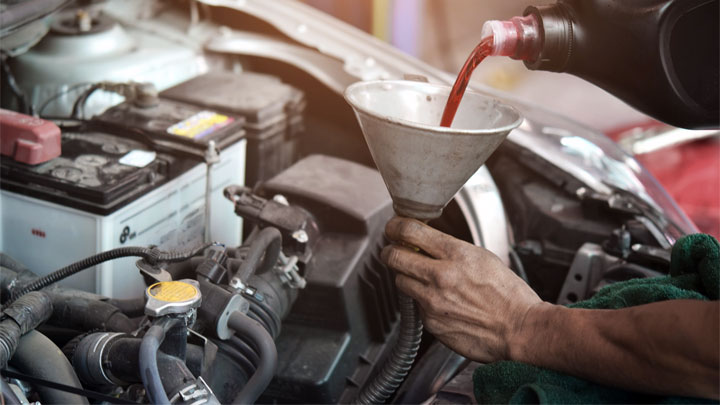Are you experiencing strange noises, slipping gears or a burning smell in your vehicle? If so, it might be an indication that your CVT (Continuously Variable Transmission) is in dire need of a rebuild and fluid change. The good news is that as long as you catch the warning signs early enough, you can avoid costly breakdowns down the line. In this blog post, we’ll take a closer look at some tell-tale signs that suggest it’s time to give your CVT transmission some TLC. So buckle up and let’s get started!
Table of Contents
What is a CVT Transmission?
A CVT transmission is a type of automatic transmission that uses a belt or chain to send power from the engine to the wheels. CVT transmissions are typically more efficient than traditional automatic transmissions, and they often provide a smoother ride as well. However, CVT transmissions can be more expensive to repair and maintain than traditional automatics, and they may not be available for all vehicle types. If you’re considering a CVT transmission for your next vehicle, it’s important to understand how they work and what the potential benefits and drawbacks are. A CVT transmission fluid change will help to keep your transmission running smoothly and prevent costly repairs down the road.
Signs Your CVT Transmission Needs a Rebuild and Fluid Change
If your vehicle has a CVT transmission, it’s important to be aware of the signs that it may need a rebuild or fluid change. Here are some common signs:
- Your vehicle is slipping out of gear or seems to be “stuck” in one gear.
- You notice a decrease in power or performance when accelerating.
- Your vehicle lurches or jerks when shifting gears.
- You hear strange noises coming from the transmission area, such as whining, grinding, or clicking sounds.
- The “check engine” light is illuminated on your dash.
If you notice any of these signs, it’s important to have your transmission checked by a qualified mechanic as soon as possible to avoid further damage.
Benefits of Rebuilds and Fluid Changes
Just like any other transmission, CVTs need to be rebuilt periodically. The main benefit of a rebuild is that it can restore your transmission to its original condition. This can help improve performance and fuel economy.
A fluid change is also important for CVT transmissions. Over time, the fluid in your transmission can become contaminated with metal shavings and other debris. This can cause the transmission to slip or not shift properly. A fluid change will remove this debris and help improve the performance of your CVT transmission.
What to Expect During the Rebuild and Fluid Change Process
If your CVT transmission is in need of a rebuild, there are a few things you can expect during the process. First, the transmission will be completely disassembled and all of the parts will be inspected for wear and damage. Next, the worn or damaged parts will be replaced with new ones and the transmission will be reassembled. Finally, new transmission fluid will be added to the transmission and it will be tested to ensure proper operation.
How Often Should You Have Your CVT Transmissions Rebuilt and Fluids Changed?
If you’re wondering how often you should have your CVT transmission rebuilt or fluids changed, the answer may vary depending on who you ask. However, most experts recommend rebuilding your CVT every 50,000 to 60,000 miles and changing the fluid every 30,000 miles.
Of course, these are just general guidelines and your actual mileage may vary depending on how you drive and maintain your vehicle. If you do a lot of stop-and-go driving or haul heavy loads regularly, you may need to rebuild your CVT more frequently. Conversely, if you take good care of your car and drive mostly on highways, you may be able to go longer between rebuilds.
Regardless of how often you need to rebuild or change fluids, it’s important to keep an eye out for signs that your CVT is in need of service. These can include unusual noises (whining or humming), jerky acceleration, reduced fuel economy, and more. If you notice any of these issues, it’s best to have your transmission checked by a qualified mechanic as soon as possible.
Conclusion
If you think your CVT transmission is on its last legs, it’s important to get it serviced by a professional as soon as possible. A rebuild and fluid change can help restore the performance of your vehicle and prevent more costly repairs down the line. Be sure to look out for the above mentioned signs that indicate a CVT transmission needs attention, so you can take action before further problems arise.












